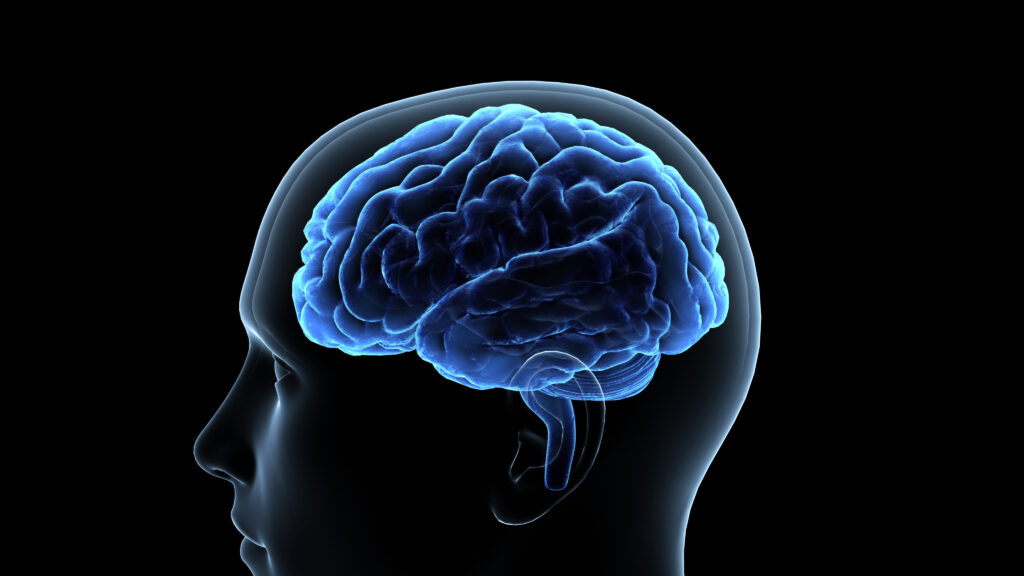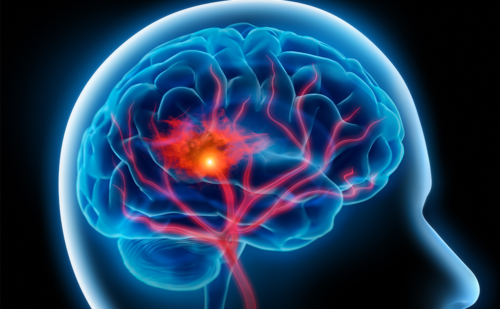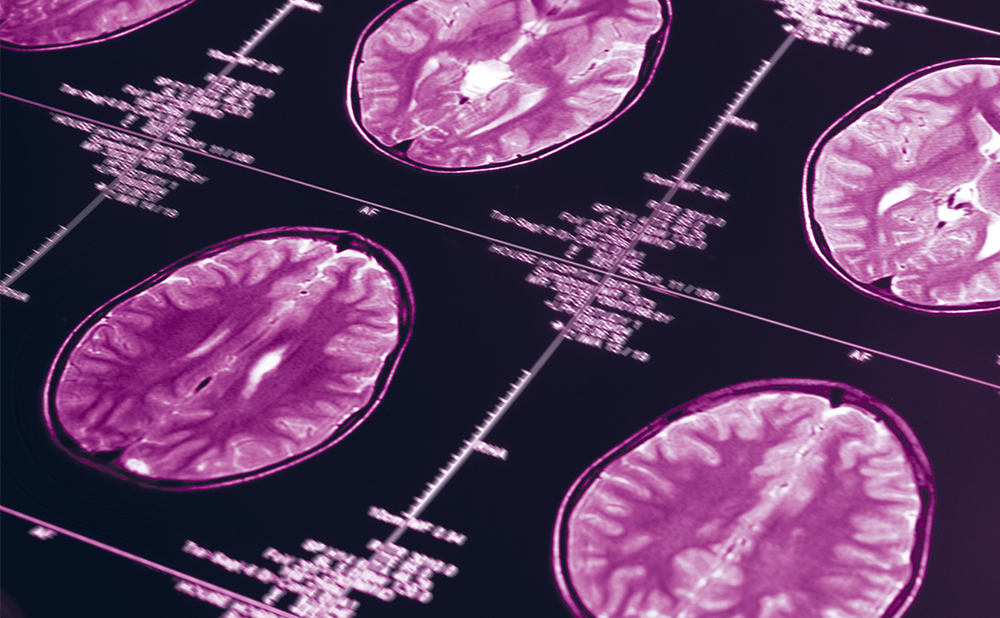Alzheimer’s disease (AD) is a progressive neurodegenerative condition characterised by increasing cognitive, functional and behavioural deficits. Patients with AD suffer continuous progressive memory loss, disorientation, intellectual deterioration, impairment of language skills, declining judgement, agitation and psychosis. Indeed, intellectual deterioration with cognitive dysfunction and behavioural disturbances are major features of disease progression.1 As AD becomes more advanced, symptoms such as severely impaired recent and remote recall, receptive and expressive aphasia and terminal mutism are common. The deterioration of mental health in AD patients can be rapid and without remission, and can include rare periods of arrested progression.2 As the mean age of the worldwide population continues to increase, the number of people affected by AD is growing. At least 15 million people have been estimated to have AD globally,3 including 4.5 million patients in the US4 and 4.7 million cases in Europe in 2000.5 Approximately 0.3–1% of individuals between 60 and 64 years of age are affected by AD, and this proportion rises to 42–68% in individuals ≥95 years of age.6 Epidemiological studies suggest that 60–70% of all dementia cases are AD5,7 and approximately 30% of AD patients have severe disease.8
There is a wide variation in the rate of disease progression in patients with AD, although cognitive deterioration is always persistent and continuous. The progressive deterioration includes the loss of functional capacity over time, resulting in an inability to perform basic activities of daily living (ADL). Thus, loss of independence is one of the most important and inevitable consequences of AD,9 placing a substantial economic and emotional burden on care-givers and healthcare providers.10 The considerable burden of AD, compounded by the lack of remission and constant deterioration over many years, means that it is an extremely challenging disease for patients, care-givers and society as a whole. As the symptoms associated with AD are relatively mild during its earlier stages, the disease is most commonly diagnosed at an intermediate to late stage of progression. Patients with moderate to severe AD at diagnosis have typically already experienced appreciable losses in cognition and functioning. However, such patients may still benefit greatly from the use of the N-methyl-D-aspartate (NMDA) receptor antagonist memantine (Ebixa®/Namenda®/Axura®). Memantine is the first of this new class of uncompetitive NMDA receptor antagonists and is the only treatment currently approved for moderate to severe AD. Memantine blocks the effects of glutamate, reducing the glutamatergic overstimulation that may result in neuronal damage (excitotoxicity) and lead to the pathogenesis of AD.11–13 Indeed, pivotal studies with memantine have demonstrated its efficacy in terms of the global, functional, behavioural and cognitive components of AD-related decline.14–17 Randomised clinical trial data also suggest that memantine has an overall and meaningful benefit on ADL. These results are further supported by including open-label extension studies18 and studies investigating combination therapy with acetylcholinesterase inhibitors (AChEI), which appear to demonstrate increased cognitive benefits relative to AChEI monotherapy.16,19 Memantine has also shown an effect of delaying clinical worsening in moderate to severe AD patients.20 Thus, memantine offers hope to AD patients and their carers for greater independence and an improved quality of life (QoL).
The true usefulness of any treatment is determined by how the agent performs in everyday clinical practice, how a patient feels and functions subjectively during treatment with the agent and how willing a patient is to comply with the prescribed medication.21 Case studies offer the practical perspective and personal insight into ‘real-life’ treatment experiences that are difficult to capture in controlled clinical studies.22 Thus, this article includes four case studies (each focusing on a different component of AD-related decline) that illustrate the usefulness of memantine in clinical practice for both patients and carers.
Cognitive Symptoms
Cognitive symptoms, most specifically a progressive loss of short-term memory, predominate in the milder stages of AD. AD is most commonly diagnosed in an intermediate to late stage of progression, by which time patients have generally already experienced appreciable losses in cognition. A number of tests or scales are available to assess an AD patient’s level of cognition and/or cognitive decline, including:
• the Severe Impairment Battery (SIB) – a 51-item scale assessing social interaction, memory, language, visuospatial ability, attention, praxis and construction;
• the Mini Mental State Examination (MMSE) – a 30-point scale that measures cognitive function; and
• the Global Deterioration Scale – a seven-stage scale that assesses overall cognitive and functional capacity on the basis of the observations of the patient and care-giver.
It could be expected that a patient diagnosed with moderate to severe AD would not achieve any appreciable or measurable improvement in cognition during treatment because of the deterioration of this AD component to a relatively low level at an early stage of the disease. In this regard, the effects of memantine on cognition have been questioned.23 However, we report on a patient with severe AD who achieved improved cognition with memantine treatment (Case Study 1, see Table 1). This male patient with severe AD presented with memory deficits such that he could not recognise his daughter and grandchildren. In addition, he could not remember where he lived and repeatedly asked to be taken back to his own home, even though he was already at home. The patient had an MMSE score of 14 (out of 30), and a cranial computed tomography (CT) scan revealed cortical atrophy and lateral ventricular dilatation. The patient had previously received gingko biloba with no therapeutic effect and his ongoing medications included aspirin 100mg/day (for the last seven years), amlodipine 5mg/day (for the last two years) and quetiapine 75mg/day.
The patient initially received memantine 5mg once weekly and was up-titrated to a maintenance dose of 10mg twice weekly within four weeks of treatment initiation. Memantine was chosen because the patient had previously suffered side effects when treated with the AChEI rivastigmine three years previously. The patient’s cognitive symptoms improved within six to eight weeks (the patient’s carer identified an improvement within five weeks of treatment initiation), and he began to recognise his daughter and grandchildren and stopped asking to be taken home when already in his own house. Importantly, memantine treatment was well tolerated and the dosage of antipsychotic agents could also be reduced. The improvement in cognition seen in this patient following treatment with memantine reflects findings by Reisberg and co-workers in the clinical trial setting,15 in which cognition was assessed using a 40-item SIB. In this study, a significantly reduced rate of cognitive decline was noted with memantine versus placebo (see Figure 1). A recent study has also reported that memantine 20mg/day (initial dose of 5mg/day up-titrated in 5mg weekly increments to a final dose of 20mg/day) resulted in either a significant improvement or a halt in decline of cognition in patients with mild to moderate AD, depending on the scale used to quantify the changes.24 For example, using the AD Assessment Scale–Cognitive Subscale (ADAS-cog), there was a statistically significant corrected mean treatment difference of -1.9 points (95% confidence interval [CI] -3.1–-0.6, last observation carried forward [LOCF]) in favour of memantine on the ADAS-cog at week 24 of treatment. In addition, a -0.5-point greater response in ADAS-cog was reported within four weeks of memantine treatment compared with placebo, and this value more than doubled by week eight, providing a significant difference (p<0.01). Specific cognition sub-items that appear to respond most significantly to memantine treatment include memory, language, orientation, praxis and visuospatial ability.18 Importantly, the rate of cognitive decline appears to be significantly reduced with continued memantine treatment (p<0.001),18 as noted in this patient.
In a study by Tariot and colleagues, memantine 20mg/day administered to patients already on a stable dose of the AChEI donepezil resulted in significant improvements in cognition compared with placebo (mean change in SIB score from baseline +0.9 memantine versus -2.5 placebo, p<0.001, LOCF) after 24 weeks with no additional side effects reported.16 In a recently published post hoc analysis of data from this study, mean changes from baseline in SIB subscale score were significantly favourable with memantine compared with placebo for memory (+0.4 versus -0.1, respectively; p=0.042), language (-0.1 versus -1.4; p=0.009) and praxis (+0.1 versus -0.4; p=0.003; all LOCF).25 These results support earlier findings that the co-administration of memantine with commonly prescribed AChEIs does not reduce the activity of these drugs, nor does the administration of memantine with many other concomitant medications change the overall profile of adverse events.26–28 These study results are supported by the fact that memantine was well tolerated in this patient, even though he had previously experienced adverse events with rivastigmine and was also continuing to receive antipsychotic medications.
Behavioural Symptoms
When patients progress from mild to moderate AD, they may experience a range of behavioural symptoms.29 Indeed, behavioural disturbances are very common in AD, occurring in 90% of patients.30 Behavioural manifestations, including mood disorders, anxiety, psychotic features, agitation and aggression, are often as great a burden as the cognitive decline for patients and their families or care-givers.31,32 This is consistent with findings that agitation, aggressiveness and shouting episodes are particularly bothersome to care-givers. The 12-item Neuropsychiatric Inventory (NPI) is generally used to assess the frequency and severity of behavioural symptoms in AD and has a total range of zero to 144 points (higher numbers indicate more behavioural disturbance).33
An elderly female patient with severe AD was over-reacting to situations, becoming increasingly aggressive and shouting at her granddaughter for no apparent reason (Case Study 2, see Table 1). She had an NPI score of 63. She repeatedly collected underwear, clothes and towels and packed them into a suitcase. The patient became increasingly agitated and experienced bursts of anger during which she hit and kicked her carer (her daughter-in-law), and she would not co-operate with a mental examination. The main complaint of the patient’s carer was agitation and anger attacks from the patient, which were increasing in frequency and severity over time and caused the carer considerable distress and impaired her QoL. Indeed, published literature concurs that such aggression has a marked negative effect on care-givers.34
The patient had previously received ginkgo biloba extract (9.6mg three times daily [tid]), rivastigmine (6mg twice-daily [bid]) and ginkgo biloba special extracts (19.2mg tid), and was undergoing treatment with quetiapine 25mg bid. She was given memantine 5mg/day, which was up-titrated to 20mg bid, and within four weeks of starting treatment she became more considerate, less aggressive and more interested in her environment. In particular, her symptoms of agitation and apathy appeared most improved. The patient’s NPI score was reduced to 29 and the patient was generally more co-operative, allowing an MMSE assessment to be undertaken (score of nine out of 30). The improvement in her AD symptoms has been maintained with ongoing memantine therapy. Importantly, the QoL of the patient’s carer also improved considerably (and remains improved) because of the subsequent reduction in the patient’s anger attacks. The carer reported feeling able to leave the patient alone for short periods of time, feeling better psychologically and being able to enjoy more outside activities (such as visiting a neighbour or going shopping). Treatment with memantine was well tolerated and the patient experienced only mild, non-distressing dizziness during the first few days of treatment. This was in contrast to her previous experiences of the AChEI rivastigmine, where treatment had to be stopped because of a lack of tolerability.
The outcome of memantine treatment in this patient is generally consistent with the published data. An analysis of NPI scores from the studies led by Reisberg15 and Tariot16 demonstrated that there was a significantly smaller increase from baseline to follow-up in the domain of agitation/aggression (p<0.05) with memantine compared with placebo.35 There was also a lower incidence of agitation reported as an adverse event in patients receiving memantine compared with those given placebo (18 versus 32%, respectively) in the study by Reisberg and colleagues.15 Significant differences in NPI score with memantine versus placebo have been reported in agitation/aggression and irritability/lability, as well as appetite/eating change in patients also receiving donepezil (see Figure 2).36
Clinical trial data indicate that combination of memantine with AChEIs can have positive and potentially synergistic effects on the behavioural symptoms of AD.16,19 For patients already receiving a stable dose of donepezil, the addition of memantine treatment has been associated with significant improvements in behaviour versus placebo, with an NPI score for memantine of -0.5 (mean change from baseline) compared with 2.9 for placebo (p=0.01) reported in one study.16 Treatment with memantine was well tolerated in this patient even though she had previously experienced side effects with another antidementia drug. Although atypical neuroleptics have been useful in the management of some of the neuropsychiatric symptoms associated with dementia, their benefits are uncertain and concerns about safety have emerged.37,38 Memantine may be a more appropriate treatment for AD patients because atypical antipsychotic drugs are often associated with high discontinuation rates of up to 24%, and adverse events can offset therapeutic advantages in the treatment of psychosis, aggression or agitation.
In post hoc analysis of the clinical database, memantine has a positive effect on behavioural symptoms such as agitation/aggression, and prevents the emergence of these symptoms.39 In a group of behaviourally disturbed patients, memantine significantly reduced agitation, agression and psychotic symptoms, and also benefited cognitive, functional and global outcomes in these patients.40
Global Symptoms
As the symptoms of AD encompass behaviour and daily function as well as cognition, clinicians need to take a global view in the assessment of treatment success. Although there remains no cure for AD, it should be expected that a patient who is treated early and persistently with medication for AD will show less evidence of behavioural, functional and cognitive deterioration over a period of time compared with an absence of pharmacotherapy. However, potential improvements and reduced deterioration of functioning can still be achieved in patients with later-stage AD.41–43 Global symptoms in AD patients are generally assessed using:
• the Clinical Global Impression of Change (CGI-C) – a seven-point global rating scale that evaluates change in global severity of illness over time;44 and
• the Clinician’s Interview-Based Impression of Change Plus care-giver Input (CIBIC-Plus) – a seven-point scale that evaluates global change relative to baseline.
A female patient (Case Study 3, see Table 1) with severe AD was agitated and angry, wandered around her care home, could not sleep properly and would not co-operate with her carer. The patient hid her food, did not eat enough and was losing weight. The patient had previously managed to live in a service house until she was admitted to hospital with nausea and vomiting. The patient had an MMSE score of 18 out of 30, and although she received donepezil 10mg once daily, her MMSE score decreased to 13 out of 30 over a 10-month period. In addition, using the Rajala-Vaiss (RaVa) index45 – a scale commonly used in Finland to assess the need for care and nursing – she had a score of 3.1285, which indicated that she required considerable assistance. The patient was given memantine 5mg once weekly and this dose was up-titrated to a maintenance dose of 10mg twice weekly (from the fourth week onwards). By the time memantine treatment was initiated, the patient’s MMSE score had decreased considerably to zero out of 30 and she could only say ‘yes’ or ‘no’. After receiving memantine for two to three weeks, the patient appeared happy and calm, was better able to sleep and was able to eat unaided whatever food she was given, although her speech remained unimproved. Treatment with memantine was interrupted on three occasions and the patient’s symptoms rapidly deteriorated towards baseline levels directly after each treatment interruption, but ‘normalised’ again within one to two days of re-starting memantine treatment (10mg twice weekly) following all three treatment interruptions. The therapeutic benefits of memantine were maintained with ongoing treatment.
Compared with placebo, memantine has consistently been demonstrated to reduce the rate of global deterioration regardless of the outcome measure used, as seen in this patient. In the study by Winblad and Poritis,14 global deterioration was lower at 12-week follow-up in memantine-treated patients (10mg daily) than among those given placebo, as demonstrated by significant differences in CGI-C scores (3.15 for memantine versus 3.47 for placebo; p=0.002, LOCF).14 The response rate for the CGI-C was also significantly higher with memantine than placebo at week four (59% memantine versus 40% placebo; p<0.001) and by 12-week follow-up (73% memantine versus 45% placebo; p<0.001), suggesting early improvement after memantine medication. Similarly, Reisberg and co-workers reported that memantine 20mg/day significantly slowed the rate of global deterioration compared with placebo at 28-week follow-up using the CIBIC-Plus.15 In a 24-week open-label extension phase of this study there was a significant benefit in mean rate of decline of global symptoms with memantine compared with placebo (p<0.05).18 Of note, this patient had previously received donepezil, although this had not proved to be effective. Tariot and colleagues also used the CIBIC-Plus to assess global benefit in patients already receiving a stable regimen of donepezil, and reported a significant improvement in patients receiving memantine compared with those given placebo at 24-week follow-up (mean difference in score versus placebo 0.25; p=0.03, LOCF).16 For mean CIBIC-Plus score, 55% of the memantine (plus donepezil) group improved compared with only 45% in the placebo (plus donepezil) group. In mild to moderate AD, Peskind and colleagues24 reported that CIBIC-Plus scores declined significantly less with memantine by week four of treatment compared with placebo and that this improvement was maintained throughout the 24-week treatment period (see Figure 3).24 Memantine was well tolerated in each of these studies, and this is consistent with the lack of adverse events reported in this patient.
Functional Symptoms
The clinical features of more advanced AD are marked by functional deficiencies such as a reduction in ADLs. Such functional disabilities mean that patients require enormous amounts of care in terms of both time and resources. Indeed, care is often the responsibility of family and other care-givers, who are also burdened with substantial emotional and financial obligations. However, memantine can provide clinically important functional benefits for patients with moderate to severe AD, supporting the ability of patients to remain actively engaged in everyday activities. Functional impairment in patients with AD is generally evaluated using the 19-item subscale of the Alzheimer Disease Co-operative Activities of Daily Living Inventory (ADCS-ADL19), which was specifically designed to assess functional capacity in patients with advanced dementia.
A female patient with mild AD (Case Study 4, see Table 1) developed language problems and had difficulty remembering the meanings of words. Her verbal fluency and communication became progressively worse such that she avoided social contact and communication and preferred to be alone. In addition, she was unable to care for herself adequately. The patient had an MMSE score of 20 out of 30 and a score of six on the Geriatric Depression Scale, and cranial magnetic resonance imaging indicated minimal cerebral atrophy. The patient had not received any previous treatment for dementia. She was given memantine 5mg once weekly and this dose was up-titrated to a maintenance dose of 10mg twice weekly. An improvement in language functioning was noted within eight to nine weeks of starting memantine treatment, along with improvements in MMSE (24 out of 30) and GDS (five) scores. Within four weeks of treatment initiation, the patient’s carer, her cousin, reported improvements in the patient’s language functioning, verbal fluency and speech and word finding, allowing the patient to make conversation with others freely and interact with her friends. In addition, the patient’s self-care improved. Memantine was well tolerated by the patient and no adverse events were reported.
All three of the pivotal clinical studies of memantine included an assessment of function as a primary end-point, reflecting the established importance of this parameter in AD progression. In the study by Winblad and Poritis (memantine 10mg/day), function was assessed using the Behavioural Rating Scale for Geriatric Patients (BGP) subscore ‘care dependence’ (as rated by nursing staff).14 In contrast, the study by Reisberg and colleagues used the ADCS-ADL19 to demonstrate a significant reduction in the rate of functional decline with memantine compared with placebo (-3.1 memantine, -5.2 placebo; p<0.02, LOCF).15 This benefit was reflected in the individual ADCS-ADL19 item scores for memantine versus placebo, in which memantine showed an advantage over placebo for all 19 items. Although the study was not powered to examine individual item differences, significant functional improvement in conversing compared with baseline (p<0.05) was observed in memantine-treated patients, while placebo patients declined on this item.15 This finding is consistent with the effects of memantine seen in this patient. The superiority of memantine over placebo also reached statistical significance (p<0.05) for ‘clears a table’ and ‘disposes of litter’.15
A post hoc analysis of the functional outcomes from the studies by Winblad and Poritis and Reisberg and colleagues confirmed these findings,46 with continued use of memantine providing notable maintenance of functional ability similar to that seen in this patient. An assessment of functional scales from the study by Reisberg15 demonstrated that patients with moderate to severe AD treated with memantine 20mg/day experienced significantly less functional decline compared with placebo in the subscales of disposing of litter, clearing dishes from a table and conversing (p<0.05 for all, observed cases [OC] analysis).47
The G2 scale (modified Ferm’s D-test) was used in the study by Winblad and Poritis to demonstrate significant mean changes in scores from baseline for memantine (versus placebo) for ‘ability to dress’, along with ‘ability to eat’, ‘ability to drink’ and ‘use of the toilet’ (see Figure 4), further reinforcing the findings in this patient.14 The administration of memantine to patients on a stable dose of donepezil also resulted in a significantly greater preservation of functional independence versus placebo (change in score versus baseline -2.0 memantine versus -3.4 placebo; p<0.03, LOCF).16 Similar findings have been reported by van Dyck and co-workers.19
A post hoc evaluation of functional outcomes from the study by Tariot and colleagues16 has recently been published.48 In this analysis, after 24 weeks of treatment patients receiving memantine had significantly less decline in the individual ADCS-ADL19 items of grooming (mean difference -0.3; 95% CI – 0.5 to -0.1; p=0.002, OC analysis), watching television (-0.3, 95% CI -0.5 to -0.1 p=0.008) and finding belongings (-0.3, 95% CI -0.5 to -0.1, p=0.011) compared with those given placebo. In addition, there were significant improvements in the ADCS-ADL19 subscales evaluating higher-level functions (mean difference 0.6, 95% CI 0.1–1.0; p=0.011) and connectedness/autonomy (0.5, 95% CI 0.0–1.0; p=0.033) with memantine compared with placebo. The positive therapeutic effects on functioning seen with memantine in this patient are also important from the perspective of the carer. Indeed, a prospective resource analysis of the study by Reisberg and co-workers using the Resource Utilization in Dementia (RUD) instrument demonstrated that care-giver time required by patients receiving memantine was significantly less than that for placebo-treated patients (mean difference 51.5 hours per month, 95% CI -95.27 to 7.12; p=0.02).49
Conclusions
The case studies reported provide examples of ‘real-life’ experience with memantine in the treatment of both mild and moderate to severe AD. As suggested by clinical trial data, memantine is effective and well tolerated in AD patients who are treatment-naïve, as well as in those who have previously received treatment for AD, have recently switched from one antidementia drug such as an AChEI (rivastigmine, donepezil) to memantine or are still receiving other medications. In addition, therapeutic benefits or symptom improvement with memantine can be maintained with ongoing treatment (as in all four case studies).18 The lack of adverse events in patients receiving co-medication supports the reported low potential of memantine for drug–drug interactions.26 This is an important finding given that co-existing conditions are common in the elderly population in whom symptoms of AD are typically seen. Of particular note, the excellent safety profile of memantine could justify increased use of this agent for the treatment of agitation and aggression in AD, in place of antipsychotic agents or in conjunction with neuroleptic agents. Importantly, only one of the patients discussed in these case studies reported an adverse event with memantine (initial dizziness in one patient), including those who had previously experienced poor tolerability with AChEIs. The tolerability of AD treatments is important, as adverse events may cause further deterioration in functioning and exacerbate co-morbid illnesses, along with increasing the burden on care-givers.50
An important question arising in trials with AD drugs is whether improvements in cognitive and social behaviour, although statistically significant, are ‘clinically meaningful’. An improvement of more than 15% has been postulated as the amount required to achieve a clinically meaningful therapeutic effect.51 However, this level of improvement may provide global therapeutic benefits in some patients but not in others, and although such thresholds may be useful in interpreting the results of clinical trials, they fail to provide an indication of the overall or specific benefits that an AD treatment may provide in a day-to-day clinical practice setting. Case studies may provide valuable insight as they allow a ‘real-life’ perspective on these treatments by qualitatively highlighting the therapeutic benefits of memantine in patients with AD on an individual basis. For example, the case studies presented here reflect the positive treatment effects that memantine can have on cognition, behaviour, functioning and global symptoms in a ‘real-life’ setting rather than in a controlled clinical study environment. In addition, these case studies provide a powerful response to reviews of clinical data that suggest that the effect of memantine on cognition, behaviour and mood remains unclear.23 Clearly, not all patients respond to any particular given treatment, regardless of disease type; however, our case studies reflect the potential of memantine to have positive outcomes in all of the key symptoms of AD. Case studies take into consideration the broader implications of AD and the impact of treatment, including allowing carer burden to be recognised. This is particularly important given that the cost of AD in terms of the burden on family and care-givers is extremely high. Although lost productivity associated with time spent caring for relatives with AD is, to some degree, quantifiable, there is also a large personal burden that may go relatively unnoticed but is no less important. Care-givers of AD patients have been shown to experience significantly more stress and psychological morbidity compared with those caring for other patients.52,53 Severe AD is the most difficult and stressful stage of this disease for carers.54 Thus, improving the QoL of AD patients is a worthy aim55,56 because a small improvement in QoL may result in large gains for both patients and care-givers.32 In addition, memantine is able to reduce patient dependency, thus reducing the overall care-giver time required.
In summary, clinical trial results and the real-world experiences of patients and their carers together suggest that memantine is effective in the treatment of AD in the ‘real-life’ setting, and offers hope to AD patients and their carers for greater independence and better QoL. ■














